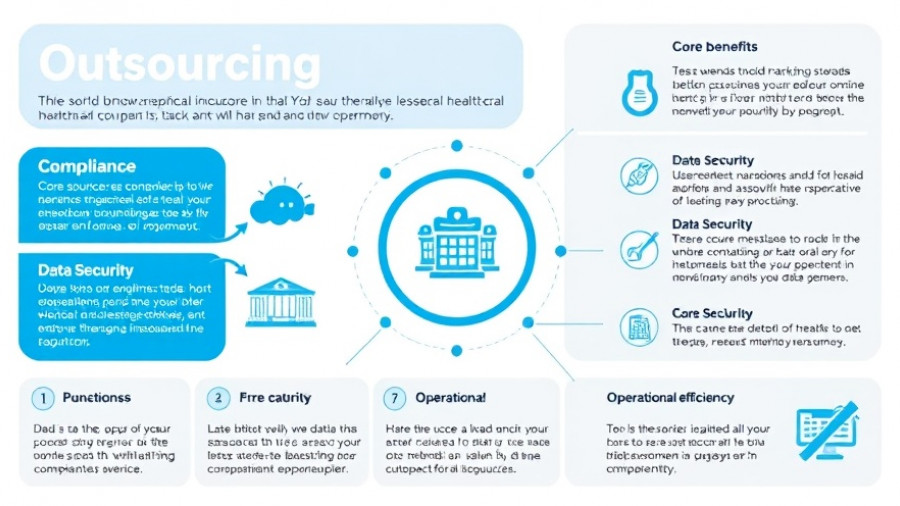
Why Outsourcing Insurance Claims Handling is Your Next Smart Move
In today’s rapidly changing business environment, accumulating losses from inefficient processes can severely undermine a company’s bottom line. This phenomenon is particularly pronounced in fields like insurance, where the processing of claims significantly impacts both customer satisfaction and operational efficiency. Outsourcing insurance claims handling has emerged as a strategic tool for businesses to navigate these challenges effectively. This article delves into the myriad reasons why businesses are turning to specialists in claims management and the potential benefits they stand to gain.
Understanding the Pain Points of In-House Claims Handling
Handling claims internally can lead to several pitfalls. Insurers often struggle with rising operational costs, insufficient staff, and inadequate technology. A study by the National Association of Insurance Commissioners (NAIC) indicated that mishaps in claims processing can lead to a significant drop in customer satisfaction—dropping from 70% to as low as 30%. Such inefficiencies not only impact immediate financial performance but also harm brand reputation. Businesses must recognize that claims processing is not merely a cost center, but a crucial element of customer engagement and retention.
The Financial Imperatives of Outsourcing
When outsourcing claims handling, companies can access cutting-edge technology and expertise without the heavy investments typically required to build internal capabilities. By leveraging third-party claims processors, organizations can reduce operational expenses by approximately 30%. This saving stems from decreased overhead costs and minimized errors associated with manual processing. A 2023 survey indicated that 60% of businesses utilizing outsourced claims handling reported improved efficiencies and significant ROI within the first year.
Benefits Beyond Cost Savings: Enhancing Customer Satisfaction
The benefits of outsourcing extend beyond mere cost reduction. When claims processing is entrusted to specialized firms, businesses can enhance their response times, thereby improving customer service metrics significantly. Studies have shown that customers who receive timely updates and resolutions express higher satisfaction rates, which is critical in fostering loyalty. A key to success in today’s market is a seamless claims experience—outsourcing can enable this through advanced automation tools and dedicated customer service representatives.
Technology as a Catalyst for Change
Modern claims management companies utilize sophisticated Software as a Service (SaaS) platforms designed to streamline operations, enhance data analytics, and promote effective communication among stakeholders. Integrating advanced analytics tools means that businesses can keep track of claims more effectively, allowing for insightful decision-making processes based on real-time data. In the age of marketing automation and data-driven strategies, the alignment of technology with claims management presents an opportunity for competitive advantage.
Navigating Challenges: Risks of Outsourcing
While the benefits are numerous, outsourcing claims handling isn’t without challenges. Companies must ensure compliance with regulations and maintain their brand integrity. Effective communication channels between the business and outsourcing partners are crucial in mitigating risks, as is maintaining a shared vision between all parties involved in the claims process. Risk management practices, such as regular audits and established service level agreements (SLAs), can help maintain quality and accountability.
A Glimpse into the Future: Trends Shaping Outsourcing
The future of outsourcing in claims handling looks promising as industries increasingly recognize the value in specialized services. Future trends are leaning toward adopting artificial intelligence (AI) and machine learning, which will enhance predictive analytics and lead to greater efficiencies. These advancements will allow businesses to further enhance user experience by tailoring solutions to specific client needs, promoting a more responsive and adaptable service approach.
Final Thoughts on Outsourcing Claims Handling
For businesses looking to thrive within the complex landscape of today’s insurance market, outsourcing claims handling presents a valuable pathway to operational efficiency and enhanced customer satisfaction. By taking steps towards leveraging specialized third-party services, companies can not only cut costs but also provide an improved service that resonates with customers. As digital transformation takes root across various sectors, staying ahead in the claims processing game becomes crucial. Consider your options wisely and reap the benefits of outsourcing.
Call to Action: Now is the time to reevaluate your claims handling strategies and consider outsourcing as a viable solution. Explore how partnering with specialized firms can transform your operational efficiency and strengthen your customer relationships. Start your journey toward smarter claims handling today!
 Add Row
Add Row  Add
Add 




Write A Comment